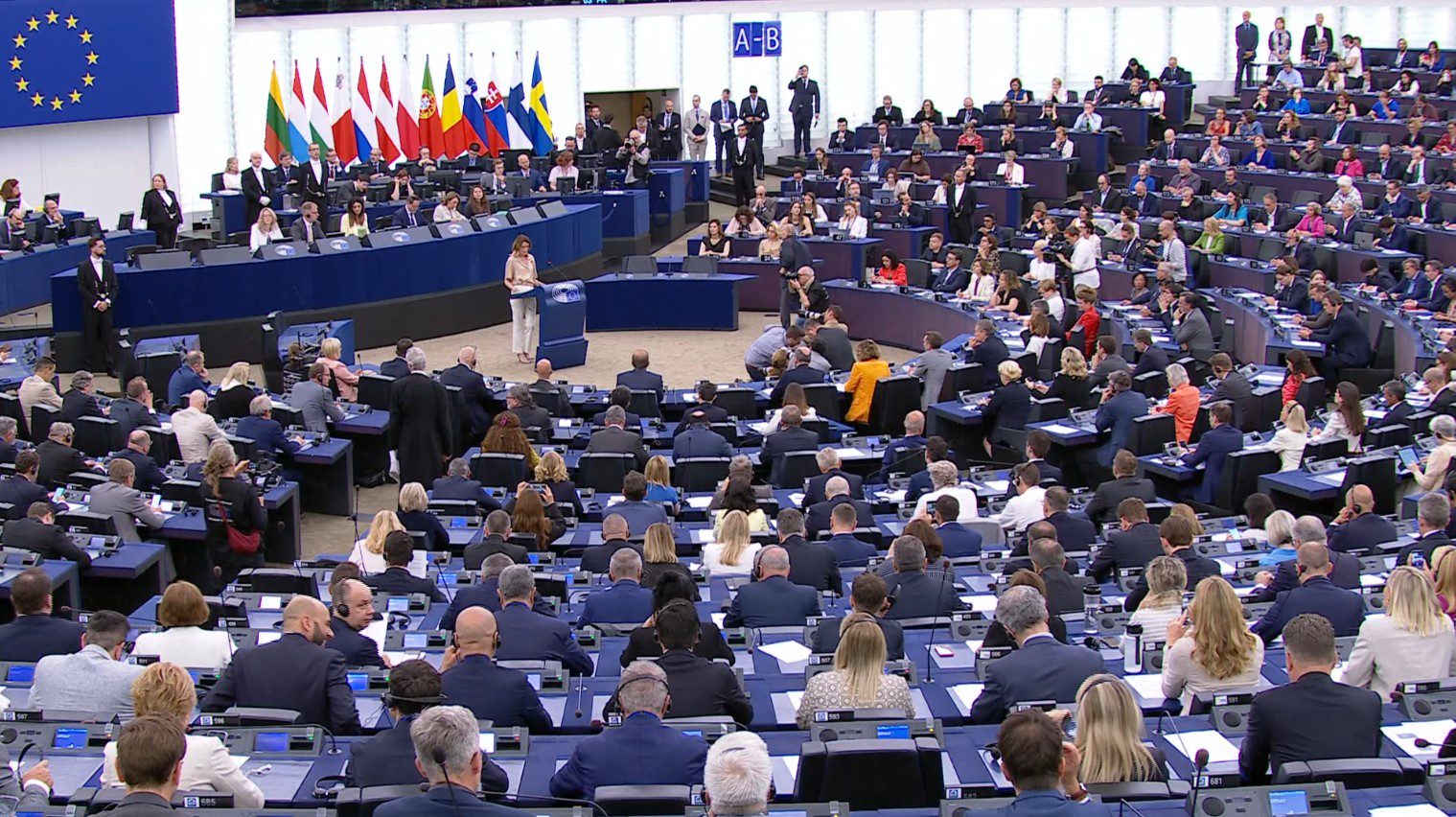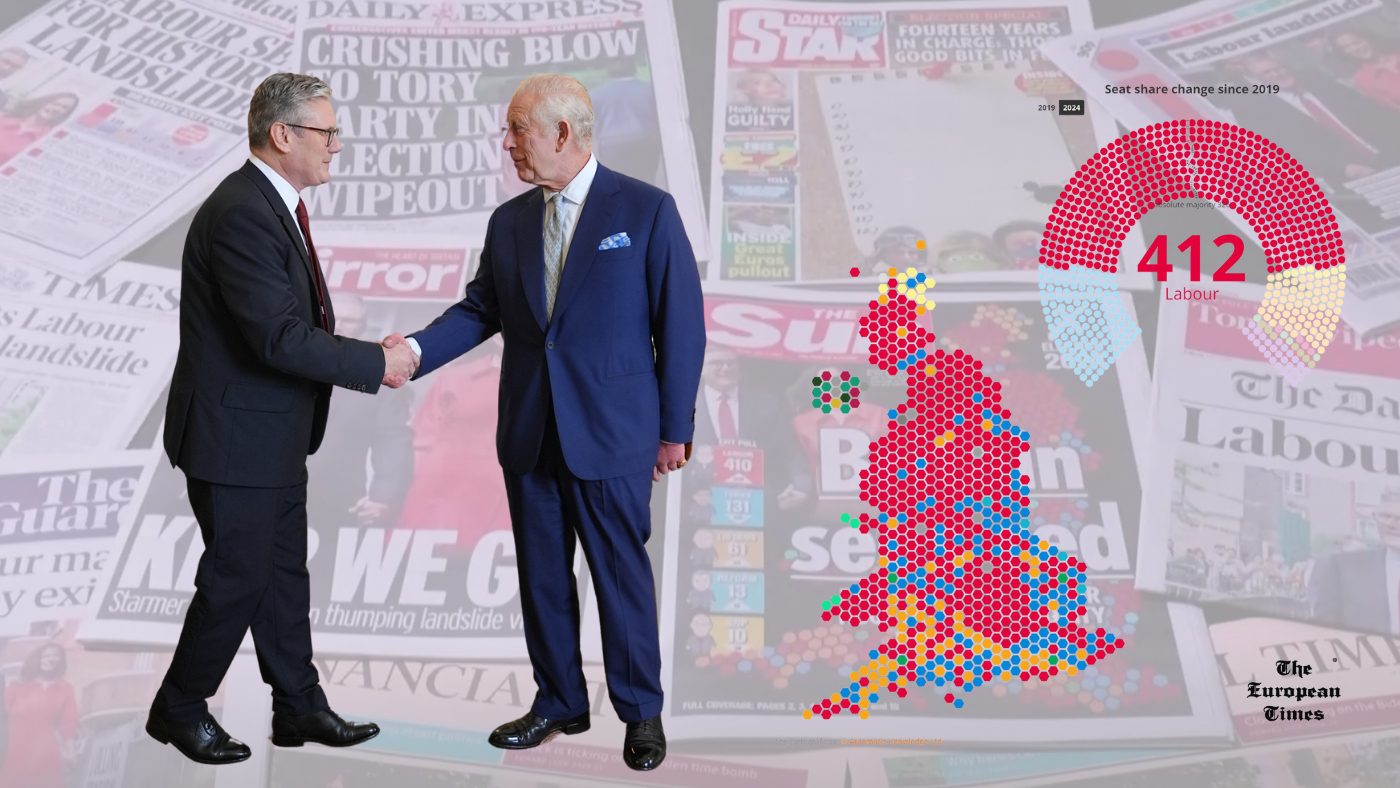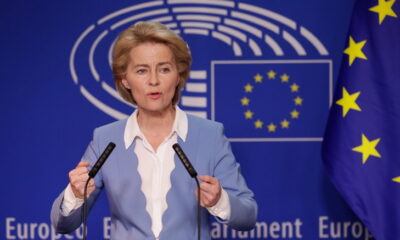Politics
EU is challenged to stand by those persecuted for changing their faith in MENA and beyond
“We don’t want you to change the culture of Yemen or the Middle East, we just ask for the right to exist. Can we accept each other?”
Hassan Al-Yemeni* was imprisoned on the charges of espionage just for converting from Islam to Christianity, the religion of the West. His story is one of many told and untold stories of persecution and discrimination in the Middle East and North Africa.
He led the call for the EU to raise the plight of religious converts in their foreign relations with MENA counterparts at an event yesterday to launch Open Doors’ World Watch List, an annual index listing the most dangerous places to live as a Christian.
The audience at the European Parliament, consisting of MEPs and their staff, EU diplomates, and EU-based NGOs heard stories of Christian converts in Muslim-dominated countries; people without identity, persecuted by their governments and rejected by their communities.
The event hosted by MEP Miriam Lexmann (EPP) and opened with remarks by MEP Patrizia Toia (S&D) was dedicated to the presentation of the 2024 World Watch List (WWL 2024) by Open Doors, an annual report which ranks the countries where it is most difficult to profess and practice the Christian faith.
Released and presented at the European Parliament at the beginning of each year, the list uses extensive research, data from Open Doors field workers, their in-country networks, external experts and persecution analysts to quantify and analyse persecution worldwide. This year’s list covers the period 1 October 2022 – 30 September 2023.
Cristian Nani (Open Doors Italy) presented the top 50 countries where Christians experience the highest levels of oppression and outlined the main trends captured by the Christian NGO in 2023.
At least 365 million Christians live with very real threats to their lives, livelihoods and church communities because of their faith globally. 1 in every 7 Christians is touched by this phenomenon. 4998 Christians killed worldwide in faith-related attacks. Figures likely run much higher, but many go unreported.
Most of these killings, recorded by Open Doors, were in the south of the Sahara Desert, including Nigeria (6).
The threat from Islamic militants in sub-Saharan Africa has intensified to the point where many Christians in the region feel increasingly fearful. Radical Islamic elements exploiting unstable political conditions is a common thread across the African continent. The fractures in governance and security have opened the door for the jihadist activities seen, for example, in Burkina Faso, Mali (14), Mozambique (39), Nigeria and Somalia (2).
North Korea (1) remains the most dangerous country in the world to exercise the Christian faith, with its regime having zero-tolerance policy for Christians.
A staggering 14,766 attacks, closures and demolitions of Christian churches, hospitals, schools and similar buildings has been recorded in WWL 2024, compared to 2,110 in the previous year – WWL 2023.
Open Doors supports Christians by protecting and promoting their right to freely believe, worship, and practice their faith alone or with others, free from intolerance and discrimination. It is for that reason that the presentation at the European Parliament was focused on Christian converts from other religions, including Islam. Those are the communities that are often the most forgotten and most affected by persecution.
Open Doors’ FoRB policy priorities for the EU, as presented at the EP, were about recognizing the interdependence of FoRB and other human rights, encouraging interfaith and interreligious dialogue and integrating FoRB analysis into its’ foreign affairs initiatives.
Hassan Al-Yemeni from CDSI Foundation, along with Kamal Fahmi from Set My People Free and Dr Yassir Eric from Communio Messianica reflected on human rights violations that come from the society and government in countries like Yemen (5), Sudan (8) because of one’s conversion to Christianity.
“If you want to measure democracy, we should look at how countries deal with conversions. Whether people can exercise their inherent right to think and change their belief” says Dr Yassir Eric.
In many countries, recanting Islam is considered the crime of apostasy punishable by death or imprisonment. The case of Sudan stands out as a positive example of abolition of the country’s apostasy law and therefore shows a sign of hope for religious minorities in Muslim-dominated countries. Dr Eric adds “this [change of law] means it is not impossible to grant the freedom of conversion in MENA”.
The speakers appealed to the European Union raise human rights concerns of those facing violations for simply exercising their fundamental freedom to choose one’s belief.
Notably, Frans Van Daele, the EU Special Envoy on FoRB outside the EU, addressed the audience to reflect on his mandate. He underlined the depth and breadth of FoRB concerns across the globe and said he tries to be diplomatic and never to appear to “impose the Western point of view”. He seeks to build upon the existing relations with third countries and use the knowledge of his EU colleagues at the EC and EEAS.
About Open Doors
Open Doors International is a global membership organisation with 25 national bases that has supported and strengthened persecuted Christians for more than 60 years and works in 70 countries. Open Doors provides practical support to persecuted Christians such as food, medicines, trauma care, legal assistance, safe houses and schools, as well as spiritual support through Christian literature, training and resources.
To arrange an interview with speakers, Open Doors representatives, contact Anastasia Hartman at [email protected]
Politics
European Parliament begins its 10th term

European Parliament Convenes in Strasbourg: New President to be Elected amid Growing Diversity
On a momentous Tuesday in Strasbourg, the European Parliament, following the recent European elections held on 6-9 June, officially commenced its proceedings. The session, presided over by the outgoing EP President, Roberta Metsola of the EPP from Malta, commenced with a musical interlude before Pina Picierno, the second Vice-President in the outgoing Parliament from Italy’s S&D, announced the contenders for the coveted Presidency of the Parliament.
The highly anticipated vote, conducted through a secret paper ballot, is set to occur immediately after the inaugural session. To ensure a fair process, eight MEPs, selected by lot, will oversee the election proceedings.
The distinguished candidates vying for the Presidency are Roberta Metsola representing EPP from Malta and Irene Montero from The Left in Spain. Ahead of the crucial vote, both candidates delivered succinct statements to the plenary, outlining their visions for the future of the European Parliament.
To attain victory, a candidate must secure an absolute majority of valid votes cast, which equates to 50% plus one. In the event of no clear winner in the initial round of voting, subsequent rounds may follow with the possibility of new or existing candidates being nominated under the same stipulations. If needed, a third round could ensue with the same regulations. Should no candidate emerge victorious after the third round, the two candidates with the highest votes in this round will advance to a decisive fourth and final round, with the majority winner emerging triumphant.
Upon the election of the new President, the distinguished individual will assume the leadership position and deliver a notable opening address, setting the tone for the parliamentary term ahead.
In this landmark tenth term, the European Parliament boasts 720 seats, an increase of 15 from the previous legislature. Notably, 54% of MEPs are fresh faces, marking a slight decrease from the 2019 intake of 61%, with the representation of women comprising 39%, down marginally from the 40% mark in 2019.
Among the diverse MEP cohort, Lena Schilling, a 23-year-old from Austria representing Greens/EFA, stands as the youngest member, while the seasoned Leoluca Orlando from Italy, a Green/EFA representative aged 77, holds the distinction of the oldest MEP. The average age of MEPs stands at 50, reflecting a diverse range of experiences and perspectives within the parliamentary body.
As the tenth term commences, the European Parliament encompasses eight political groups, an increase from the previous session. Additionally, 32 MEPs remain non-attached, underscoring the dynamic landscape of political affiliations within the Parliament and highlighting the vibrant tapestry of representation in the European legislative body.
Politics
For the first time in 40 years, the Olympics will not be broadcast in Russia

Not a single TV channel, streaming platform or cinema in Russia will show the competitions from the Summer Olympics in Paris, which begin on July 26, sports.ru writes. This happened for the first time in 40 years, when in 1984 the USSR boycotted the Olympics in Los Angeles.
The official explanation is that this time only 16 athletes will participate under a neutral flag, without an anthem and in “unpopular sports”. The unofficial thing is that this is a purely political decision of the Kremlin, and heads of federations call those who agreed to participate traitors, homeless people and foreign agents.
Paris Mayor on Russians at the 2024 Olympics: It would be better if they didn’t come
Anne Hidalgo condemned the International Olympic Committee’s decision regarding representatives of the aggressor country, she said already in March.
According to the official, it would be good if athletes from the terrorist country did not participate in international competitions.
“I prefer that they not come. We cannot act as if the invasion does not exist. We cannot act as if Putin is not a dictator who is threatening all of Europe today.”
At the same time, she added that such sanctions cannot be imposed against Israeli athletes, since Israel’s actions are different from Russia’s aggression.
“There can be no talk of imposing sanctions against Israel in connection with the Olympic and Paralympic Games. Because Israel is a democratic country,” the mayor told Reuters.
Photo: Social Network / korrespondent.net.
Politics
Keir Starmer Secures Historic Labour Victory, Ending 14 Years of Conservative Rule in UK

London – In a seismic shift in British politics, the Labour Party, led by Keir Starmer, has achieved a resounding victory in the UK general election, bringing an end to 14 years of Conservative governance. The results, which had been foreshadowed by months of polling, have given Labour its strongest parliamentary majority since 2001.
Labour secured an impressive 412 seats, far surpassing the 326 required for an absolute majority and more than doubling their 2019 performance. This landslide victory marks a dramatic turnaround for the party and signals a clear desire for change among the British electorate.
Upon learning of his victory in his central London constituency, Starmer declared, “The people have spoken, and they are ready for change.” This statement encapsulates the mood of a nation seemingly eager to embark on a new political chapter.

The Conservative Party, in stark contrast, suffered its worst defeat since its founding in 1834. The Tories lost at least 250 seats compared to their 2019 performance under Boris Johnson, ending up with a mere 121 seats. This historic collapse prompted the outgoing Prime Minister, Rishi Sunak, to apologize to “those Conservatives who have lost despite their dedication” while congratulating Starmer on his victory.
The election also saw significant shifts for other parties. The Liberal Democrats, led by Ed Davey, emerged as the third-largest party with 71 seats, a gain of 63 from the previous election. The Scottish National Party (SNP) experienced a dramatic decline, securing only nine seats, a loss of 38 compared to 2019. Sinn Fein, the Irish republican party, maintained its seven seats.

In a surprising development, the nationalist-populist Reform UK, led by Nigel Farage, entered Parliament with four seats, exceeding all poll predictions. The Green Party quadrupled its representation, winning four seats in total.
Starmer’s first address as Prime Minister was filled with promises of change and renewal. “We did it!” he exclaimed, emphasizing that Britons would wake up to find “a weight has finally been lifted from the shoulders of this great nation.” He stressed the urgency of rebuilding trust in politics and committed to serving all citizens, regardless of their voting preferences.
The new Prime Minister outlined his government’s priorities, including improving security on streets and borders, rebuilding infrastructure, and enhancing opportunities in education and employment. “Changing a country isn’t as easy as pressing a button,” Starmer cautioned, “We will rebuild the United Kingdom, brick by brick.”
Rishi Sunak, in his farewell speech, acknowledged the clear signal for change sent by the electorate. “I have heard your anger and disappointment. I take responsibility for these results,” he stated. Sunak announced his intention to step down as Conservative Party leader, but not immediately, allowing time for a formal process to choose his successor.
The election also marked a personal triumph for Nigel Farage, who finally won a parliamentary seat on his eighth attempt, representing Clacton-on-Sea. Farage hailed his party’s performance as “extraordinary” and vowed to fill what he sees as a “huge void in the center-right.”
In regional developments, Sinn Fein became the largest Northern Irish party in the British Parliament for the first time, maintaining its seven seats while the Democratic Unionist Party (DUP) fell to four. In Scotland, the SNP lost its dominance, dropping from 48 seats in 2019 to just 8, with Labour making significant gains. Wales saw the Conservatives lose all representation, with Labour dominating the results.
As the United Kingdom enters this new political era under Starmer’s leadership, the country faces significant challenges. The incoming government must address economic concerns, social policies, and perhaps most critically, work to restore public trust in the political system. The scale of Labour’s victory suggests a strong mandate for change, but the real test lies in translating this electoral success into effective governance in the years to come.
-

 Sports7 days ago
Sports7 days agoOfficial: Juventus announces sixth purchase
-

 Health & Society7 days ago
Health & Society7 days agoThe intoxicated society
-

 Politics5 days ago
Politics5 days agoThe Russian patriarch to Putin: You are the first truly Orthodox president
-

 Sports6 days ago
Sports6 days agoBeautiful Juve: Vlahovic and youth rout Verona. Thiago Motta first
-

 Sports6 days ago
Sports6 days agoJuventus, Vlahovic: “Now we play a different game.”
-

 Health & Society2 days ago
Health & Society2 days ago7 Superfoods That Will Boost Your Fitness Results
-

 Politics3 days ago
Politics3 days agoEU Intensifies Pressure: Six-Month Extension of Russia Sanctions
-

 Politics2 days ago
Politics2 days agoStatement by President von der Leyen at the joint press conference with President Metsola following the European Parliament Plenary vote








